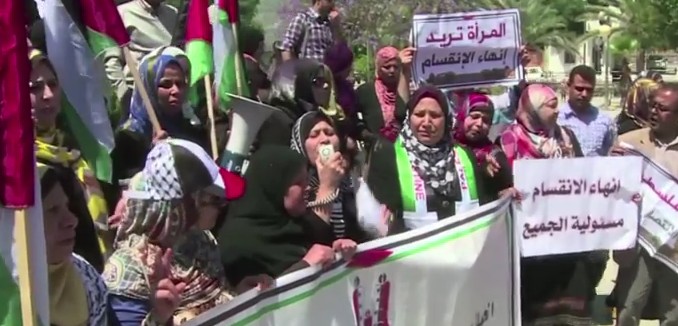David Pollock of the Washington Institute for Near East Policy released on Friday an analysis of recent Palestinian public opinion polls, which held some surprising conclusions with important implications for the region.
Pollock notes that despite the apparent contradiction, most Palestinians favor a unity government between Fatah and Hamas, while at the same time, a majority, though a smaller one, also wants that government to work for peace.
A bare majority of West Bank and Gaza Palestinians support the statement by Palestinian Authority president Mahmoud Abbas that the new government “would recognize Israel, renounce violence, and honor all previous international agreements.” But the margin in favor is somewhat higher in the West Bank (54 percent vs. 40 percent) than in Gaza, where the public is almost evenly split on this question.
The polling also shows that Palestinian generally favor continuing peace talks and maintaining good relations with the United States, and consider assisting Syrians to be almost as important at the Palestinian-Israeli conflict.
The combination of these factors suggests to Pollock that the administration has leverage with the Palestinian Authority.
These data demonstrate that a U.S. policy of holding the new Palestinian government to previous commitments regarding nonviolence and negotiations with Israel would enjoy majority acceptance at the Palestinian popular level. Moreover, looking forward, the West Bank and Gaza publics both appear more receptive to the Fatah than to the Hamas side of their new national unity arrangement. This could offer U.S. policymakers some prospect of working to preserve the option of a two-state solution, despite Hamas’s continuing rejection of that ideal.
To be sure, others facts revealed by Palestinian polling make peace seem remote. The most popular leader among the Palestinians is Marwan Barghouti, who is serving five life terms for terror-related murders. If Pollock is correct, though, it suggests that the Obama administration and the West, generally, could be doing a lot more to moderate the position of the Palestinian leadership.
[Photo: AFP news agency / YouTube ]




